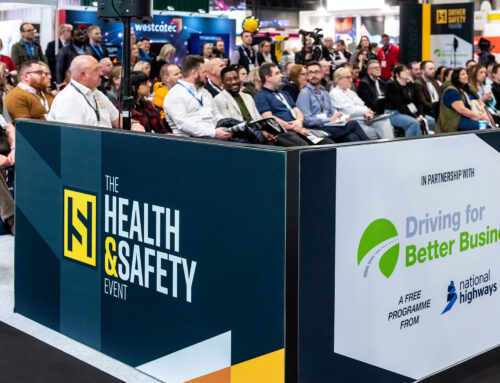1st March 2023
Dr Lucy Rackliff BA (Hons), MSc, PG Cert, PhD
“We need innovative solutions to keep society moving while creating a better environment. Women’s experiences, knowledge and ideas must be part of that.”.
Dr Lucy Rackliff BA (Hons), MSc, PG Cert, PhD – Interim Head of the Department of Engineering Systems and Supply Chain, Aston University
A Teacher or Lecturer is not the first role that springs to mind when considering a career in transport or road safety, but with over 25 years’ experience in this sector, Lucy is best placed to tell us more about her journey.
“I think it came from several things in combination. My parents took us on lots of train trips when we were growing up, including one ridiculous day trip to the Isle of Skye, which involved travelling overnight Friday, spending Saturday there and travelling overnight home again to arrive back on Sunday morning. They got so excited about trips like that and as an adult I was surprised to find that this was not a common childhood experience! I also remember my grandad had a hobby of driving buses and when we were quite little, my sister and I would often go on the bus with him. It was clear that it was a particularly important connection for many of the passengers, not just to get from A to B, but to socialise and have a change of scene.”
A Career in Transport
“Having initially studied Economics at university, I found myself working in finance at the time, but 2 years into a graduate job, I was already bored. My then-boyfriend told me he had found a fabulous Master’s degree in transport and was planning to apply for it. Out of curiosity, I looked at the course and was similarly excited by it. We started the course together in 1994, married the following year, and happy to say, still happily married and working in transport!”
Lucy’s jump from economics to transport was one which transformed her career; enabling her to help students discover their passions, whilst fulfilling her own passions for transport and economics.
Lucy has worked in various roles and locations throughout her career. They include working as a Researcher, Department of Transport and Logistics, Huddersfield University, a Researcher, Transport Operations Research Group, University of Newcastle Upon Tyne and a Senior Researcher, Vehicle Safety Research Centre, Loughborough University and as a Senior Lecturer in Transport and Logistics at Aston University.
Her research lecturing covers a vast range of transport and related subjects, including Safety and Risk, Marketing, Transport Impacts, Transport Fundamentals, Passenger Transport, and Implementing Transport Policy.
Inspiring a generation – transport as a career
Lucy’s love of teaching and passion to engage with and inspire the next generation is clear to see. I’m interested to understand more about how students are introduced to what lies ahead of them. Lucy explains, “One of the most popular outreach events we run at the university looks at HS2, and links together the physical engineering work required, the importance of supply chains, to bring in building materials, people etc. and take away waste products, and the long-term transport benefits of the project. We usually have a waiting list for that event, and whilst many of the young people who come might be interested in civil engineering rather than supply chain management or transport, it’s still good to have them on campus, talking to academics and thinking about what they might want to do with their future. For most, it will be the first time they will have been inside a university, so hopefully it makes it all seem much less intimidating and more attainable.”
“Everything we teach at the University needs updating every year. It’s such a fast-moving industry, and it’s not just technology that changes. It is the politics around transport policy, the funding arrangements, and even things like travel habits. You can’t use a slide with data from 2019 in 2022, because it’s already almost irrelevant, unless you’re comparing it to 2020 and 2021 and discussing the pandemic. It’s a massive challenge, but it’s part of the attraction of teaching transport”.
“The impact and development of modern technology is an interesting area. It’s not only electric vehicles, vehicle technology, autonomous vehicles we need to consider. We also need to think about how non-transport technologies might change people’s transport needs. During Covid we were all told that homeworking, Teams and Zoom meant the traditional commute was dead, but there does seem to be this gradual drift back to the office, so understanding how people chose to substitute technology solutions for physical journeys is interesting.
Lucy tells me that the full-time Transport Management programme at the University is still almost exclusively male, but the Degree Apprenticeship in Transport Planning does have more women. “I think there is still a job to do in terms of explaining the variety of careers in transport. We often get asked at the University open days whether it’s “too niche” when the exact opposite is true. There is so much potential opportunity, whether your interest is Law, Marketing, Psychology, Engineering, or something else entirely – there is an area of transport aligned with it. We just need to do more as an industry to promote transport as a great career option and challenge the perception that it’s a bit “nerdy””.
When asked what her advice is to a someone thinking of pursuing a career in transport or road safety, Lucy laughs and says, “Absolutely to go for it. Having been bored within 2 years in finance, I haven’t been bored by transport in over 25 years! We need diverse voices to ensure the system meets the needs of the people it is designed for, and increasingly, we need innovative solutions to keep society moving whilst creating a better environment. Women’s experiences, knowledge and ideas must be part of that.”
Just before Lucy leaves us, I ask which part of her career which she is most proud of. “I’m tempted to say every single graduation! Often, we first meet students as 16- or 17-year-olds at an open day. Since we have a compulsory placement year, most are over 22 years old when they graduate, with relevant industrial experience, good graduate job offers, and new-found confidence. It’s an absolute privilege being part of that. There are some students whose achievements particularly stand out, and seeing them on stage at graduation, meeting the family members who have supported them through university makes me very happy and proud, even if my part in their success has been small”.
As we close this catch-up with yet, another inspiring woman, please don’t forget to look at our Women in Transport features for articles and podcasts from the other fantastic women who we have featured in this Women in Transport campaign.






